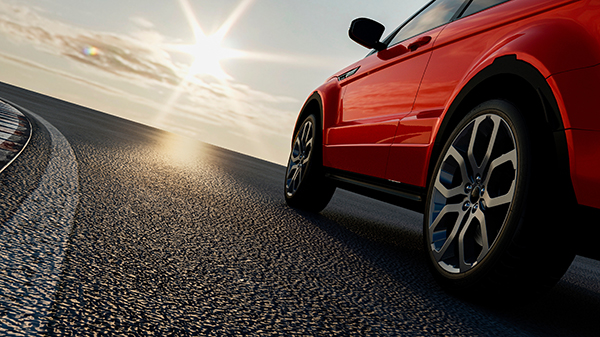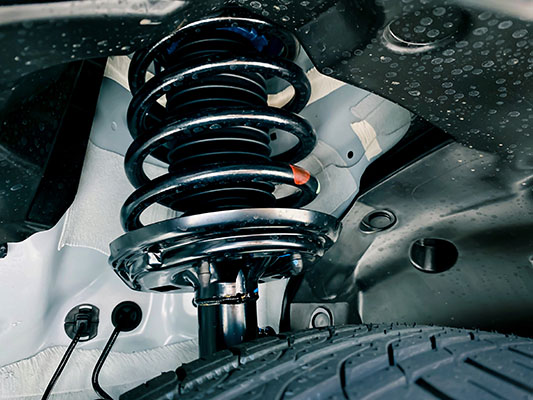Posted on 9/26/2023

Have you ever wondered about the marvel of your car's steering system? You hop into the driver's seat, place your hands on the steering wheel, and with a gentle turn, you effortlessly navigate the road. But have you ever asked yourself, "How is turning the steering wheel on my car so easy?" - we will let you in on a secret about that, but only if you continue reading! Power Steering - The Magic Behind Everything The key to your car's easy steering lies in a technological advancement known as power steering. Before its invention back in 1926, turning the wheel required significant physical effort, especially at low speeds or when parking. Power steering changed the game by adding a hydraulic or electric component that amplifies the force you apply to the steering wheel. There are several steering mechanisms, but two shine the brightest:Hydraulic Power Steering In hydraulic ... read more
Posted on 8/29/2023

As the summer sun rises, so does the temperature of the asphalt beneath our wheels. As drivers, we often worry about the impact of heat on our cars' engines, but we shouldn't forget the crucial role that tires play in keeping us safe on sizzling roads. Heat-Induced Tire Pressure Dance One of the most noticeable effects of summer heat on tires is the change in tire pressure. As the ambient temperature rises, so does the air pressure inside your tires. Overinflated tires can lead to reduced traction, uneven wear, and even blowouts, jeopardizing your safety on the road. To combat this, check your tire pressure regularly during the summer months and adjust it to the manufacturer's recommended levels. Remember to do this when the tires are cold, as heat from driving can lead to inaccurate readings. Dangers of Overloading Summer vacations often mean packing up the car and hitting the road for an adventure. However, ove ... read more
Posted on 7/31/2023

Your vehicle's suspension system is directly linked to the steering system, the wheels, and the chassis. This means that when the suspension has issues, it carries out on all other parts. What parts can be damaged? Continue reading if you want to find out more! Components and systems affected by a malfunctioning suspension system: Handling and stability Braking performance Tire wear and traction Comfort and ride quality Safety A bad suspension system can significantly impact your vehicle's handling and stability. Worn-out or damaged components, such as shocks or struts, can lead to excessive body roll, reduced grip, and poor handling around corners or during sudden maneuvers. This lack of control can make your vehicle feel unstable and compromise your ability to safely navigate various driving conditions. The suspension sys ... read more
Posted on 6/30/2023

For businesses that rely on a fleet of vehicles, efficiency, reliability, and cost-effectiveness are essential factors in maintaining successful operations. Fleet services offer comprehensive solutions tailored to the specific needs of businesses with multiple vehicles. Explore how fleet services can benefit your fleet below, from reducing maintenance costs and optimizing vehicle performance to improving safety and increasing overall productivity. 1. Streamlined Maintenance and Repairs One of the primary advantages of fleet services is the ability to streamline maintenance and repairs. Fleet service providers offer scheduled maintenance programs and preventive maintenance services to ensure that your vehicles are regularly inspected, serviced, and repaired as needed. This proactive approach helps identify and address potential issues before they become major problems, reducing downtime and minimizing costly breakdowns. 2. ... read more
Posted on 4/30/2023

Whether buying your first car or just staying under budget, the $15,000 price point is a balance of performance, comfort, and reliability. You will be able to find quite a lot of vehicles, from newer models with fewer extras to older ones with more features because of their price depreciation over the years. For that reason, we have chosen vehicles from 2014 to 2016, because of their lower price but still packing a lot in the looks and performance departments. Continue reading to find out our top three picks for cars under $15,000. 2015 Subaru BRZ/Toyota 86/Scion FRS If you are looking for a sportier-looking car, the Toyota and Subaru have something to offer. This vehicle shares a platform and is almost completely identical to the others - the BRZ/86/FRS. They come with a flat-4 engine making a respectable 200 HP - keep in mind that it's a couple; therefore lighter than usual. If you are into customizations, there is a big aftermarket for everything from bumpers ... read more